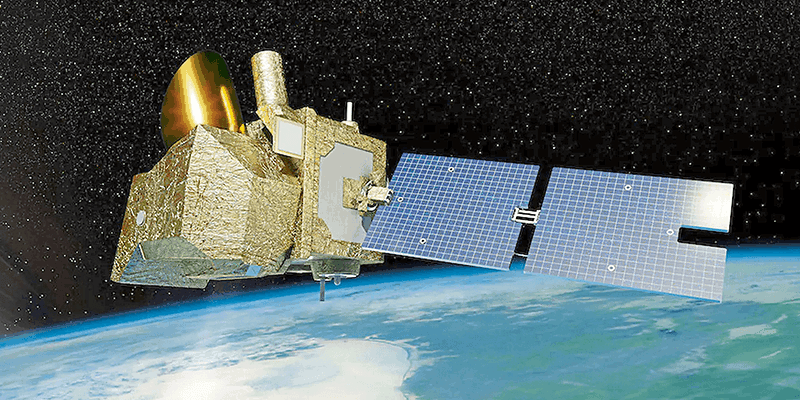Accurately tracking and measuring concentrations of carbon dioxide is the role for a new Franco-British earth observation mission.

Scheduled for launch next year, the MicroCarb satellite mission (pictured below) will monitor and map carbon dioxide(CO)sources and sinks in support of the Space Climate Observatory, one of the key elements of the Paris Agreement. This will be the first European mission to track fluctuations of greenhouse gases on the Earth’s surface and to measure the quantities of CO2 absorbed by the oceans and forests, the main “sinks” of the planet.
Billions of tons of CO2 are released into the atmosphere each year, mainly through the burning of fossil fuels and about 50% of these emissions remain in the atmosphere and are the cause of global warming. Half of the emissions are absorbed by the oceans and the rest in other sinks, but our ability to track CO2 distribution is very limited.
The 200kg MicroCarb payload, based on a passive infrared spectrometer and optical imager, will play a central role in international efforts to quantify the CO2 emitted and absorbed by natural processes and human activities.
The on-board Pointing and Calibration System (PCS), developed by RAL Space, an entity of the Science and Technology Facilities Council (STFC), and the optical test device developed by the UK’s National Physical Laboratory (NPL), have both been delivered to Airbus Defence and Space, the prime contractor for MicroCarb.
When placed into sun-synchronous orbit 650km above the Earth, MicroCarb will be able to measure the CO content over the entire atmospheric column to an accuracy of 1 ppm, and with a pixel size of 4.5 km x 9.0 km. Its compact instrument - almost three times lighter than the one embedded in NASA’s Orbiting Carbon Observatory (OCO- 2) launched in 2014 - MicroCarb utilises the proven Myriade micro-satellite platform developed by CNES.
Jean-Yves Le Gall, President of France’s Centre National D’Etudes Spatiales (CNES) and MicroCarb lead partner commented, “The fight against climate change is a key element of space cooperation between the France and the United Kingdom. MicroCarb is an example of the commitment of our two countries in this major fight of the 21st century. Thanks to its state-of-the-art instruments, the MicroCarb mission will allow a better understanding of the effects of CO2 concentration in our atmosphere related to human activity.”
Graham Turnock, President of mission
partner, the United Kingdom Space Agency, said: “These instruments are a perfect example
of the inventiveness and ingenuity that exist
in the UK space sector. They mark an exciting
new step in our collaboration with the France
on this essential mission to fight climate
change. Space plays a crucial role in our efforts
to monitor and combat climate change and
MicroCarb, Europe’s first mission to measure
carbon sources and sinks, will provide us with
the information we need to make the Earth
healthier.”


